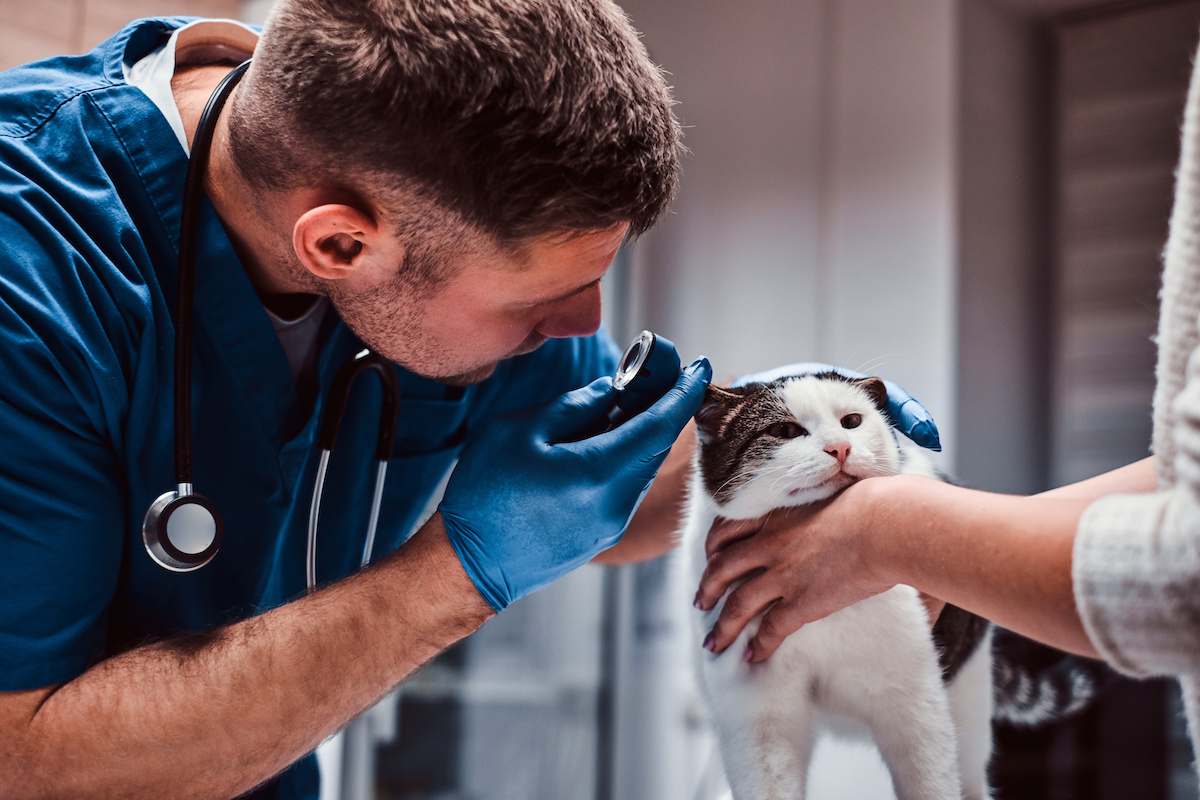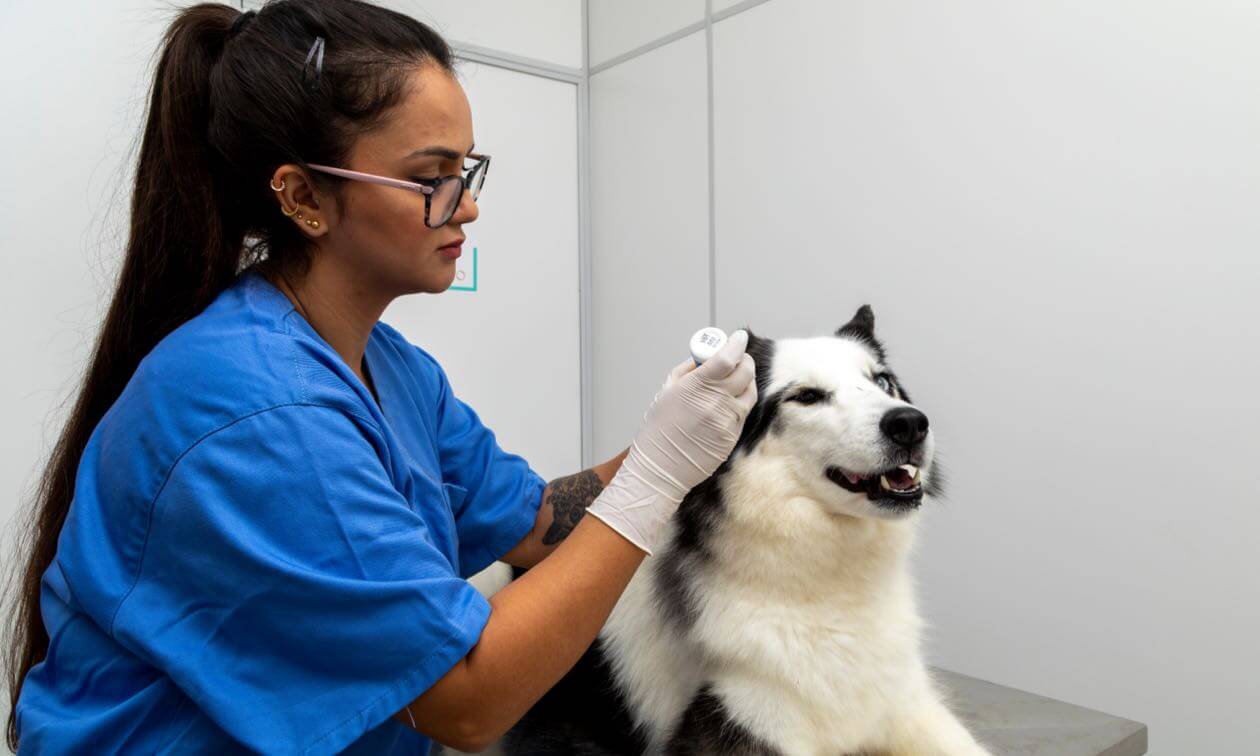Professional Tips for Animal Nutrition From a Vet
Understanding the nutritional needs of animals is critical for their overall health and wellness and durability (Animal Hospital Greensburg). With the multitude of animal food alternatives available, pet owners commonly locate themselves navigating a landscape swarming with false information and misconceptions.
Understanding Nutritional Needs
Comprehending the dietary demands of pets is fundamental to guaranteeing their total health and well-being. Much like people, pet dogs call for a balanced diet that offers necessary nutrients, consisting of proteins, fats, vitamins, carbs, and minerals. These nutrients play critical roles in different physical features, such as energy production, immune action, and tissue repair service.
They are composed of amino acids, some of which are important and should be obtained from food. Carbs serve as a primary power source and can sustain digestion health when they consist of fiber.
Each family pet may have special needs based on elements such as age, type, activity degree, and wellness standing. It is vital to seek advice from with a veterinarian to figure out the specific dietary needs customized to your animal's specific needs, guaranteeing they receive ideal nourishment throughout their life phases.

Choosing the Right Food
Selecting the suitable food for animals is a vital aspect of fulfilling their dietary requirements. It is necessary to think about elements such as age, breed, wellness, and dimension status when picking a family pet food. Young puppies and kittens require solutions that support development and growth, while adult pet dogs require balanced diet regimens that preserve their health. Senior pets might benefit from foods made to deal with age-related issues, such as joint wellness or weight management.
When evaluating pet food options, search for items that meet the Association of American Feed Control Officials (AAFCO) criteria, which guarantee that the food supplies complete and balanced nourishment. Active ingredients must be top notch, with actual meat as the primary source of protein. Stay clear of foods with too much fillers, artificial additives, or spin-offs, as these can diminish the overall nutritional value.
Consulting with a veterinarian can give customized recommendations based on your animal's certain requirements. Furthermore, transitioning in between foods need to be done gradually to avoid gastrointestinal distress. By taking these steps, animal owners can make sure that they are supplying their hairy friends with the most effective possible nutrition for a healthy and happy life.
Common Myths Concerning Pet Dog Food
Debunking misconceptions surrounding pet food is important for making sure ideal nutrition for our furry companions. One widespread misconception is that all grain-free diet plans transcend for pet dogs. Actually, grains can give essential nutrients and are not naturally dangerous. A well balanced diet can include grains, given they are not triggering any kind of allergic reactions or intolerances.

In addition, several pet dog proprietors think that "costs" or "all-natural" tags assure better. Nonetheless, these terms are often unregulated and do not necessarily indicate exceptional nutritional value. It is essential to look at active ingredient lists and dietary profiles instead.
Special Considerations for Various Types
When it concerns pet nourishment, special considerations should be thought about for various breeds, special info as each type can have one-of-a-kind dietary needs and level of sensitivities. For example, large types such as Terrific Danes and Saint Bernards are prone to musculoskeletal concerns and may gain from diet plans formulated to sustain joint health and wellness, often including active ingredients like glucosamine and omega fatty acids. On the other hand, tiny breeds like Chihuahuas might require greater calorie thickness to satisfy their power levels, requiring solutions that are rich in nutrients yet lower in bulk.
In addition, certain types might be predisposed to certain health worries, such as food allergic reactions or sensitivities. Breeds like Labrador Retrievers might struggle with weight problems, calling for careful portion control and a well balanced diet regimen to maintain a get redirected here healthy weight. On the various other hand, types such as Dachshunds may be more susceptible to spinal problems, motivating a need for diet plans that advertise back wellness and weight management.
Ultimately, comprehending these breed-specific dietary demands is important for pet owners. Consulting with a vet can aid in picking the most appropriate diet plan tailored to a private family pet's type, age, and wellness status, guaranteeing ideal nourishment and health.
Relevance of Normal Vet Exams
Recognizing the one-of-a-kind nutritional requirements of different breeds is only one aspect of responsible animal possession; regular veterinary check-ups play a vital role in keeping total wellness. These examinations are necessary for very early detection of health issues, guaranteeing that any kind of possible issues are dealt with before they come to be significant. Routine check outs allow vets to check your animal's weight, dental wellness, and crucial indications, which are essential indicators of total wellness.
Moreover, regular examinations enable vets to provide customized dietary guidance based upon your family pet's individual wellness condition - Animal Chiropractor Greensburg. As family pets read here age, their dietary needs may transform, and modifications may be needed to avoid excessive weight or nutrient deficiencies. Preventative care, consisting of vaccinations and parasite control, is likewise a fundamental element of these gos to, securing your animal from numerous diseases
Along with checkups, these consultations offer an exceptional opportunity for animal proprietors to discuss behavioral adjustments or issues regarding their pet's eating routines. By focusing on regular veterinary exams, pet owners can make sure a much longer, healthier life for their furry buddies, inevitably enhancing their high quality of life.
Verdict
Finally, guaranteeing ideal family pet nourishment calls for an extensive understanding of private dietary requirements, ideal food option, and understanding of common myths. Special factors to consider for different types should be accounted for, and normal veterinary exams play an essential function in keeping track of health and wellness and dietary modifications. Sticking to AAFCO requirements and talking to veterinarians prior to making dietary modifications will enhance the wellness of family pets, eventually adding to their durability and lifestyle.
With the wide range of animal food choices available, pet owners often find themselves browsing a landscape raging with misinformation and misconceptions. Each family pet may have distinct needs based on factors such as age, type, task level, and health status. It is essential to take into consideration aspects such as age, health and wellness, size, and breed standing when selecting an animal food. Elderly family pets may profit from foods created to deal with age-related issues, such as joint health and wellness or weight management.
Understanding the special dietary demands of various breeds is just one aspect of liable animal possession; routine vet examinations play a vital duty in maintaining general health.
Comments on “Why Vet Greensburg Is the Go-To for High Quality Pet Dog Health And Wellness Providers”